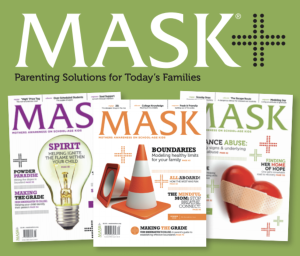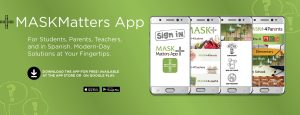
What is a Finsta?
September 3, 2021
Binge Drinking in High School
September 5, 2021“You want to let kids know that they’re important and what they say is important by listening,by stopping what you’re doing and giving them your full attention,” says Lucie Hemmen, Ph.D., clinical psychologist and author of “Parenting a Teen Girl: A Crash Course on Conflict, Communication and Connection with Your Teenage Daughter.”As kids move into adolescence,communication becomes even more critical as they face bigger challenges with their peers and deal with the temptation of alcohol, drugs and sex. Instead of giving teens long-winded lectures, Hemmen suggests asking questions “with gentle,neutral energy” and becoming a nonjudgmental listener.For example, if your daughter tells you she tried marijuana, instead of acting shocked or appalled, delay your reaction and ask how she is feeling about it.“Pause and leave some space for the kids to saymore,” says Hemmen, who also advises parents to listen attentively and avoid sermonizing. “What kid sare really afraid of is that we’re going to go on and on,and hold them hostage in endless conversation.
Don’t Just tell them,show them
In early and middle childhood, the primary way of learning is through imitation. Instead of lecturing kids about how to solve problems, teach by example.“Showing kids what to do is so much more effective than just telling them what to do,” says Robert MacKenzie, Ed.D.,educational psychologist, family therapist and author of “Setting Limits: How to Raise Responsible, Independent Children by Providing Clear Boundaries.” He encourages parents to use concrete examples androle-play different scenarios with their kids that they might encounter with siblings,friends or bullies on the playground.If siblings are squabbling and parents arrive on the scene, rather than playing detective and trying to figure out who’s at fault, MacKenzie suggests helping them explore ways to solve the problems. Instead of taking sides,a parent might ask, how are we going to work this out when it happens again? What can we do differently?Asking open-ended questions can help kids come up with solutions and take ownership of the problem.“Any time a child has a conflict and a parent sees it, they’re in a position to encourage their child to express their feelings, express their thoughts and do some creative problem solving,” says MacKenzie.The family meeting is another valuable tool for dealing with conflict in the home. Meetings can be impromptu, for example, at the dinner table, or planned ahead of time during downtime on weekends. They give all family members a chance to come together and find ways to come together and strength bonds.
To read more about strengthening communication and to learn age appropriately the conversations to incorporate add the Communication Issue to your MASK Library.
MASK the Parenting Magazine a quarterly publication providing solutions for Today’s Families.
The parenting manual offering solutions to the modern-day challenges families face. From Pre-K
through College stay up to date on the modern day issues families face.
Are you up to date on the issues your child is facing?
MASK Mothers Awareness on School-age Kids offers parenting solutions for today’s families. MASK tackles important topics – from drugs and alcohol to bullying and Internet safety -and gives students, parents and the community the knowledge and tools to manage these potential challenges.
Subscribe today! https://www.tools4teaching.com/product/mask-the-magazine/
Download and share the MASKmatters app now! Made for children, parents, teachers and in Spanish.
Have solutions at your fingertips
Available free on apple and google play links below
Apple https://apps.apple.com/us/app/maskmatters/id1482305692
Google Play
https://play.google.com/store/apps/details?id=com.maskmatters.maskmattersapp&hl=en_US&gl=US




